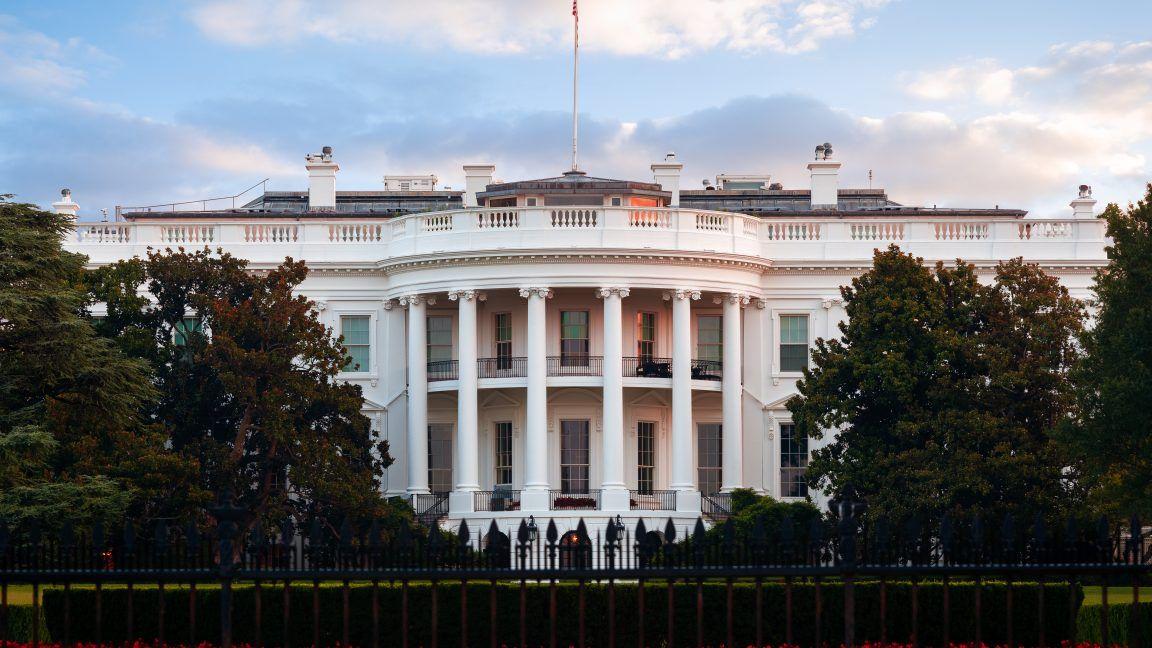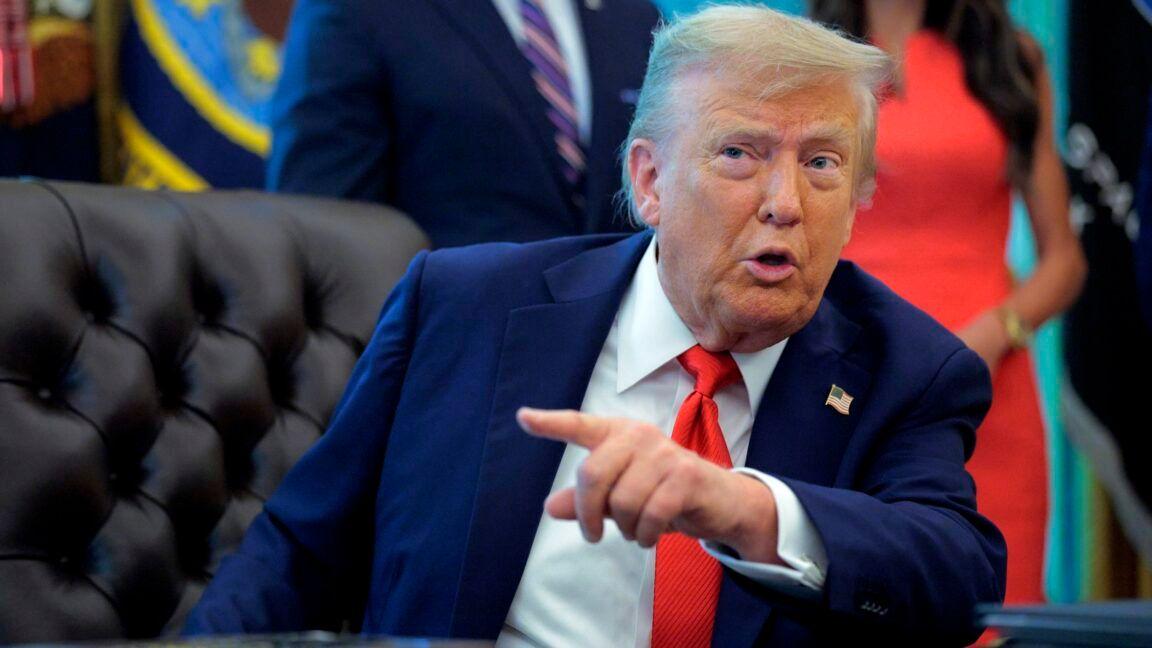Trump Administration Unveils Ambitious AI Action Plan with Political Overtones
2 Sources
2 Sources
[1]
Q&A: Expert discusses implications of administration's plans for AI
President Donald Trump intends to unveil an Artificial Intelligence Action Plan aimed at keeping the United States at the forefront of AI development. Toward that end, the president is expected to sign three new executive orders addressing data center development, financial resources, and perceived political bias. Virginia Tech communications expert Cayce Myers, versed in the legal issues surrounding AI, shared analysis of the Trump administration's AI strategy and its goals. What might the Trump administration's AI investments look like? The president's recent visit to Pennsylvania, where he highlighted companies' $92 billion investments to promote AI initiatives in the state, shows how the administration is positioning itself alongside tech leaders to make the U.S. the global leader in artificial intelligence. These investments including infrastructure such as hydroelectric dams and data centers underscore the perceived political and business stakes of the global AI competition between the U.S. and China. Does any part of the action plan suggest political aims? The Trump administration has fused AI development policy with other political issues, specifically around perceived political bias. Some news outlets have reported that the administration will release an executive order mandating that federal AI contractors' AI outputs remain politically neutral and not produce results that may be perceived as promoting political viewpoints or engaging in "woke" perspectives. Though controversial, this order falls in line with the position the administration has taken on issues of left-leaning political bias within technology and media writ large. What effects might this order have on the development of the technology? It likely will change the way some AI is developed, raising questions around how AI systems can guarantee certain types of biased outputs won't be produced. This will also have a direct impact on the type of output generated for users of AI platforms that receive federal contracts. It also underscores how artificial intelligence chatbots and outputs are not viewed as apolitical technology but rather are framed as systems that are increasingly scrutinized for their own intentional or unintentional political perspectives.
[2]
Expert Discusses the Implications of Trump's Plans for Artificial Intelligence | Newswise
Newswise -- President Donald Trump intends to unveil an Artificial Intelligence Action Plan aimed at keeping the United States at the forefront of AI development. Toward that end, the president is expected to sign three new executive orders addressing data center development, financial resources, and perceived political bias. Virginia Tech communications expert Cayce Myers, versed in the legal issues surrounding AI, shared analysis of the Trump administration's AI strategy and its goals. What might the Trump administration's AI investments look like? "The president's recent visit to Pennsylvania, where he highlighted companies' $92 billion investments to promote AI initiatives in the state, shows how the administration is positioning itself alongside tech leaders to make the U.S. the global leader in artificial intelligence. These investments including infrastructure such as hydroelectric dams and data centers underscore the perceived political and business stakes of the global AI competition between the U.S. and China." Does any part of the action plan suggest political aims? "The Trump administration has fused AI development policy with other political issues, specifically around perceived political bias. Some news outlets have reported that the administration will release an executive order mandating that federal AI contractors' AI outputs remain politically neutral and not produce results that may be perceived as promoting political viewpoints or engaging in 'woke' perspectives. Though controversial, this order falls in line with the position the administration has taken on issues of left-leaning political bias within technology and media writ large." What effects might this order have on the development of the technology? "It likely will change the way some AI is developed, raising questions around how AI systems can guarantee certain types of biased outputs won't be produced. This will also have a direct impact on the type of output generated for users of AI platforms that receive federal contracts. It also underscores how artificial intelligence chatbots and outputs are not viewed as apolitical technology but rather are framed as systems that are increasingly scrutinized for their own intentional or unintentional political perspectives." About Myers Cayce Myers is a professor of public relations and director of graduate studies at the School of Communication at Virginia Tech. His work focuses on media history, political communication, and laws that affect public relations practice. He is the author of "Artificial Intelligence and Law in the Communication Professions," "Profession and Money in Politics: Campaign Fundraising in the 2020 Presidential Election," and "Campaigns, Inc." Read more here.
Share
Share
Copy Link
President Trump plans to announce an Artificial Intelligence Action Plan aimed at maintaining U.S. leadership in AI development, including executive orders on data centers, funding, and addressing perceived political bias in AI outputs.
Trump Administration's AI Action Plan
President Donald Trump is set to unveil an Artificial Intelligence Action Plan aimed at maintaining the United States' position as a global leader in AI development. This plan includes three executive orders addressing key areas: data center development, financial resources, and perceived political bias in AI outputs
1
2
.Significant Investments in AI

Source: Phys.org
During a recent visit to Pennsylvania, President Trump highlighted $92 billion in investments to promote AI initiatives in the state. This move demonstrates the administration's strategy to align with tech leaders and position the U.S. as the foremost global leader in artificial intelligence. The investments encompass infrastructure projects such as hydroelectric dams and data centers, underscoring the perceived political and economic stakes in the global AI competition, particularly between the U.S. and China
1
2
.Political Neutrality Mandate
One of the most controversial aspects of the proposed action plan is an executive order that would require federal AI contractors to ensure their AI outputs remain politically neutral. This mandate aims to prevent AI systems from producing results that could be perceived as promoting specific political viewpoints or engaging in "woke" perspectives. This approach aligns with the administration's broader stance on addressing perceived left-leaning political bias within technology and media sectors
1
2
.Implications for AI Development
According to Virginia Tech communications expert Cayce Myers, this political neutrality mandate could significantly impact AI development processes. Developers may need to reconsider how they can guarantee that their AI systems won't produce certain types of biased outputs. This requirement is likely to directly affect the nature of content generated by AI platforms that receive federal contracts
1
2
.
Source: Newswise
Shifting Perceptions of AI
The administration's approach highlights a growing trend in how artificial intelligence is perceived. Rather than being viewed as apolitical technology, AI chatbots and outputs are increasingly scrutinized for potential intentional or unintentional political perspectives. This shift in perception could have far-reaching implications for the development and deployment of AI technologies in various sectors
1
2
.Related Stories
Global AI Competition
The Trump administration's AI Action Plan appears to be partly motivated by the ongoing technological competition between the United States and China. By emphasizing substantial investments and policy initiatives, the administration aims to secure America's position as the global leader in AI development and implementation
1
2
.Expert Analysis
Cayce Myers, a professor of public relations and director of graduate studies at Virginia Tech's School of Communication, provides insight into the legal and communication aspects of this AI strategy. His expertise in media history, political communication, and laws affecting public relations practice offers a valuable perspective on the potential impacts of the administration's AI policies
2
.References
Summarized by
Navi
Related Stories
Trump's AI Action Plan: Deregulation, Infrastructure, and the Battle Against 'Woke' AI
23 Jul 2025•Policy and Regulation

Trump Overturns Biden's AI Safeguards, Calls for 'Ideologically Unbiased' Development
21 Jan 2025•Policy and Regulation

Trump's Executive Order Targets State AI Laws, Sparking Bipartisan Pushback and Legal Uncertainty
08 Dec 2025•Policy and Regulation

Recent Highlights
1
ByteDance's Seedance 2.0 AI video generator triggers copyright infringement battle with Hollywood
Policy and Regulation

2
Demis Hassabis predicts AGI in 5-8 years, sees new golden era transforming medicine and science
Technology

3
Nvidia and Meta forge massive chip deal as computing power demands reshape AI infrastructure
Technology





